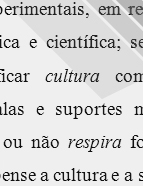

................................
While the diffusion of the press and books, of the railways and the normative and unifying State (code, school, prison, asylum) reinforced the "cultural" consciousness of identity, it is not surprising that only in the 19th century, especially post-1870-90, did cultural invocation tend to have greater expression among us, coordinated in the Iberian space, and not only in the context of historiographical affirmation, at a time of an intense debate on nationalism/Iberism among intellectual elites and a historical and cultural foundation is sought to legitimise the empire, but also, as Nietzsche accuses, in how the 19th century was chosen as the century of History (G. Menod, Revue Historique, 1876), marked by the "excess of History," mythologising origins and succession, facilitated by new social, technical, educational and informational conditions, of the creation and communication of cultural assets. Today, the examination advances on how, under the banner of nationalism (1880-1974), historiographical debate and pedagogical, scientific (congresses, symposiums), and social mediations (commemorations, civic hagiographies) polarise the invention of identities and traditions and enhance imagined communities (Hobsbawm; Gellner, A. Smith; Catroga, S. Campos Matos).
4. From Erudition to Enlightenment. Beyond the hagiologies and genealogies that established the powers in historical ecclesiastical traditions and the great figures , erudition and encyclopedism played a prominent role in the formation of a literate and elitist cultural consciousness. Guiding the movement of Academies since the 18th century (although frail a few decades later, the Royal Academy of History was founded in 1720), repertoires were established and coded the linguistic sphere and consciousness and inventoried bibliographic materials. In the case of the former, the lexicography of R. Bluteau, Vocabulário português e latino [Portuguese and Latin vocabulary],(1712-1721; 1727; expanded in archaisms in Viterbo's Elucidário [Compendium] 1798), or Fonseca (1771) and Ramalho (1855), while Morais (1789), Constâncio (1836), Domingos Vieira (posthumously, 1871), and others, compiled spoken and scholarly Portuguese into dictionaries.
